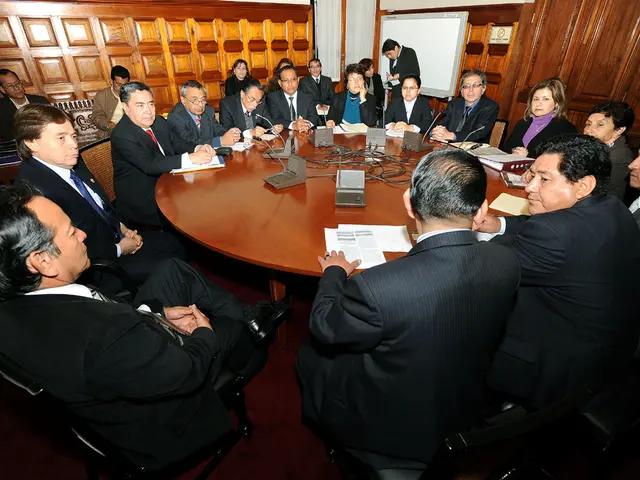German Greens to Strengthen Anti-Sexual Harassment Measures at November Conference
The German Greens (Die Grünen) are set to bolster their measures against sexual misconduct at their party conference in November. The party will vote on a proposal to revamp existing procedures, with a two-thirds majority required for approval. Key changes include the appointment of a commissioner against sexual misconduct and the establishment of a pillar model for handling complaints.
The proposed commissioner will serve for a fixed term of two years, ensuring quality control and improving party structures. This role is based on the General Equal Treatment Act and includes a detailed legal definition of 'sexual misconduct'.
The Greens aim to create a supportive environment for victims. Intake offices will provide assistance, mediate external help, and advise on internal party steps. However, anonymous complaints will no longer be allowed, and accused persons will have the right to learn about specific allegations and respond to them. Complaint offices will initiate mediation procedures.
Arbitration courts will be established to impose sanctions, such as removal of party offices, if proven allegations are found. The Greens want to implement this pillar model at federal and state levels.
Despite criticism from an internal commission, Stefan Gelbhaar, who is facing unresolved allegations, is seeking a candidacy for the House of Representatives in his district of Pankow next year.
The Greens' upcoming party conference will decide on significant changes to their sexual misconduct procedures. These include the appointment of a commissioner and the creation of a pillar model for complaint handling. The party aims to provide better support to victims while ensuring fairness to all parties involved.
Read also:
- American teenagers taking up farming roles previously filled by immigrants, a concept revisited from 1965's labor market shift.
- Weekly affairs in the German Federal Parliament (Bundestag)
- Landslide claims seven lives, injures six individuals while they work to restore a water channel in the northern region of Pakistan
- Escalating conflict in Sudan has prompted the United Nations to announce a critical gender crisis, highlighting the disproportionate impact of the ongoing violence on women and girls.






